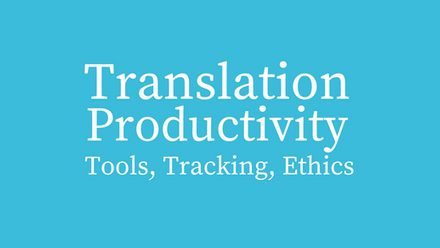Trends and research
Find out about the latest trends and research in the sector
Trends
ITI conducts a twice-yearly Pulse survey among members when we gather information on what members are experiencing in the translation and interpreting market.
 Trends
Trends
Findings from the most recent Pulse surveys.
Research
ITI is involved with various research partners working towards producing research outcomes related to the translation and interpreting sector.
 Research
Research
ITI's aim is to produce evidence-based findings upon which to model future developments and promote the highest standards in the profession.
For further information on our research projects please contact the ITI Research Network info@iti.org.uk
Freelance translator survey 2023
In February and March 2023 Inbox Translation, in collaboration with ITI, conducted a worldwide survey of freelance translators. The results enable you to compare yourself to colleagues when it comes to rates, CPD, and business practices.
Key findings include:
- 65% of respondents work exclusively as freelance translators and 52% of respondents work full-time as freelance translators;
-
The main perceived benefit of being a freelance translator is freedom/flexibility;
- The majority of translators have three or four areas of expertise, with law being the main one;
-
83% of translators consider consistency as the main benefit of using a CAT tool;
-
Almost 2 out of 3 translators struggle with low rates of pay;
-
76% of translators who are members of a professional translation body consider professional recognition as the main benefit;
-
Members of translation associations charge, on average 44% more than those who do not belong to a professional body.
Freelance translator rates: the value of ITI membership
Following the Freelance translator survey (above), ITI commissioned an analysis of ITI members' responses in particular. The first of these reports examines freelance translator rates for ITI members compared to non-members.
Key findings include:
- ITI members charge between 13% and 25% per word more than non-members;
- ITI members’ minimum charges are between 20% and 42% higher than non-members;
- ITI members charge between 13% and 20% more per hour than non-members;
- 80% of respondents considered the main benefits of membership of their professional association to include 'professional recognition'.
Freelance translator rates: the value of experience
The second report explores the relationship between experience and earning for freelance translators in the UK.
Key findings include:
- While there is a relationship between experience and rates charged, it is far from linear or straightforward. There is no simple upward progression over time, and, after the first decade of experience, additional experience does not always result in higher charges.
-
Median charges generally increased from general texts to specialised texts across all experience bands, and rates charged to direct clients were generally higher than those charged to agencies across all experience bands.
-
Median per-word rates increased clearly with experience up to the 10+ years’experience category.
- Median per-word rates tended to plateau from as early as the tenth year onwards
Other research
ITI and the ITI Western Regional Group were pleased to be project partners in this report from researchers at the University of Bristol which examines perceptions of productivity and activity tracking in translation.
Because We’re Worth It Joseph Lambert and Callum Walker
Disentangling freelance translation, status, and rate-setting in the United Kingdom
The impact of translation activities in history and now Callum Walker and Binhua Wang
How do translation activities impact history and the present?
Charting the landscape of remote medical interpreting Wei Zhang, Elena Davitti and Sabine Braun
An international survey of interpreters working in remote modalities in healthcare services.
Dissertation showcase
MA dissertations by Junior Associate and Student members of ITI are showcased in the section below.
 Dissertation showcase
Dissertation showcase
Our newly graduated members are rightly proud of the work involved in completing their MAs. Many of the topics studied are of interest to the wider translation and interpreting community and so we are pleased to showcase their work here.


